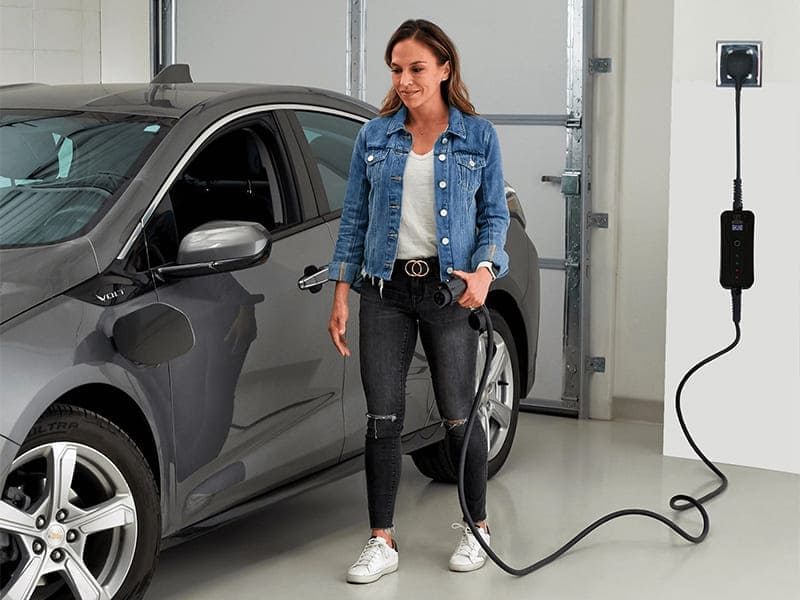A portable EV charger station is a compact, mobile charging device. Essentially, it provides electricity to electric vehicles anywhere. Unlike fixed stations, it offers ultimate flexibility. Therefore, it is a vital tool for many drivers. This guide explains its function and advantages clearly.
What Exactly Is It?
Simply put, a portable EV charger station is a mobile power source. It typically includes a control unit. It also features a connector cable. Many models store power in a built-in battery. Others simply plug into an outlet. Consequently, it serves as an emergency backup.
How Does It Work?
The mechanism is quite straightforward. First, you connect the station to a power source. Alternatively, use its internal battery. Then, you plug the connector into your EV. Next, the unit communicates with the vehicle. After that, charging begins automatically. Finally, it stops when the battery is full.
Key Components and Technology
Several parts enable this functionality. The power converter is the core component. It adjusts current from AC to DC. Furthermore, a smart chip manages safety protocols. Also, a clear display shows charging status. Therefore, the technology is both intelligent and user-friendly.
Major Benefits for EV Owners
The advantages are significant and numerous. Firstly, it eliminates range anxiety completely. You gain peace of mind on long trips. Secondly, it offers incredible convenience and portability. You can charge your car at any location. Moreover, it is perfect for roadside emergencies.
Ideal Use Cases and Scenarios
A portable EV charger station suits various situations. It is essential for long-distance travel. It is also great for remote areas without infrastructure. Furthermore, renters and apartment dwellers benefit greatly. Even homeowners appreciate the extra flexibility. Ultimately, it serves as a universal solution.
Comparison to Fixed Home Chargers
There are important differences. Fixed chargers offer much faster speeds. However, they lack mobility completely. A portable EV charger station is slower but versatile. It complements a home charger effectively. Thus, many owners choose to have both.
Limitations to Consider
Understanding the limitations is also crucial. Charging speed is noticeably slower. The internal battery capacity is often limited. Therefore, it is not for everyday primary use. Rather, it is best for occasional or emergency needs. Always check your vehicle’s compatibility first.
How to Choose the Right One
Selecting a model requires some thought. Consider your vehicle’s charging specifications first. Also, look at the unit’s power output rating. Furthermore, evaluate its portability and weight. Finally, review safety certifications carefully. This ensures a perfect match for your needs.
The Future of Portable Charging
Technology is rapidly improving. Future portable EV charger station units will be lighter. They will also charge much faster. Additionally, integration with solar power is coming. This will enhance sustainability and off-grid use. The future looks very promising indeed.
Conclusion
In summary, a portable EV charger station is incredibly useful. It provides freedom and security for EV drivers. It works through simple yet smart technology. While not a primary charging solution, it is indispensable. Every EV owner should consider investing in one. 32A Vs 16A EV charger station, if you have any idea you can click here.

